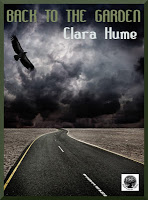Kim Stanley Robinson
Harper Collins 2004-2007
Harper Collins 2004-2007
I heard this was a good bit of cli-fi so I downloaded all
three books. The separate titles are "Forty Signs of Rain", "Fifty
Degrees Below" and "Sixty Days and Counting" (don't ask me to
explain the titles, I really have no idea what they're about). Each book weighs
upwards of 100 000 words, so all up it's a decent hefty read. They feature the same
characters and the same story so I think it's fair to review them all in one
go.
The first
book is actually darn good. It focuses on a group of high-powered American scientists
engaging with a scenario of abrupt climate-change. In this story the planet is
cooking very fast indeed. Huge changes are happening within years rather than
decades. Frank judges grant applications at the National Science Foundation. Leo
is working in a lab inserting new genes into living organisms. Anne and Charlie
are both science advisors or thereabouts, raising two sons in suburban
Washington.
The scientific
detail here is really well done and the actual "writing" is first
class. The choice of words, paragraph structure and so forth is fantastic. Robinson
touches on a lot of important contemporary ideas. One repeating theme I found
interesting was the "prisoner's dilemma" concept, which Frank uses as
an analogy for human inaction on climate change. I also liked the buddist monks
and their slowly drowning, completely fictional island.
However,
much of the first book is horribly dull. There are some utterly tedious descirptions of average domestic life. Other parts are somewhat interesting but ultimately serve to detract from the story (ie the irrelevant road-rage encounter). Surprisingly, the narrative pulls itself together towards the end of the book and delivers something satisfying - Washington is devastated by an epic flood.
Unfortunately
the second book is far worse than the first. There's very
little action and not even much science or politics. Instead Robinson seems
determined to include each and every mediocre idea he's ever had. Just about
everything is off-topic. If Robinson enrolled in a creative writing 101
class the teacher would certainly tell him to "find out what this is really about". It
seems like incredible dramas are happening elsewhere in the world, but all we
see is the mind of a scientist daydreaming his way around Washington. Furthermore,
Frank doesn't even make a very convincing scientist. We are supposed to believe
that he is working full-time on nothing less than averting global catastrophe.
But all he seems to do is sleep in a park and play frisbee.
The third
book is at least as bad as the second. It could even be worse. By this point I was
doing a lot of flick reading. In short
this is a trilogy worth flick-reading. Scavenge the good ideas and write your own cli-fi.














